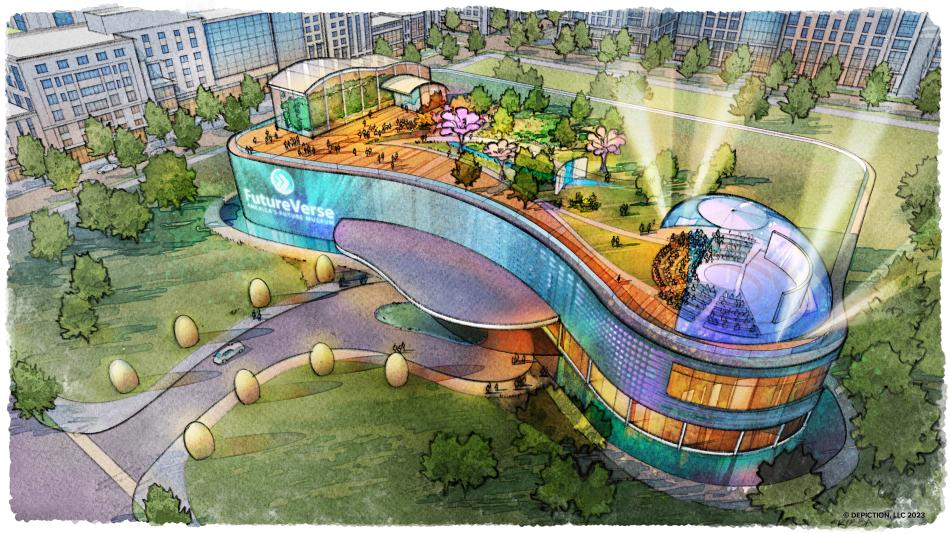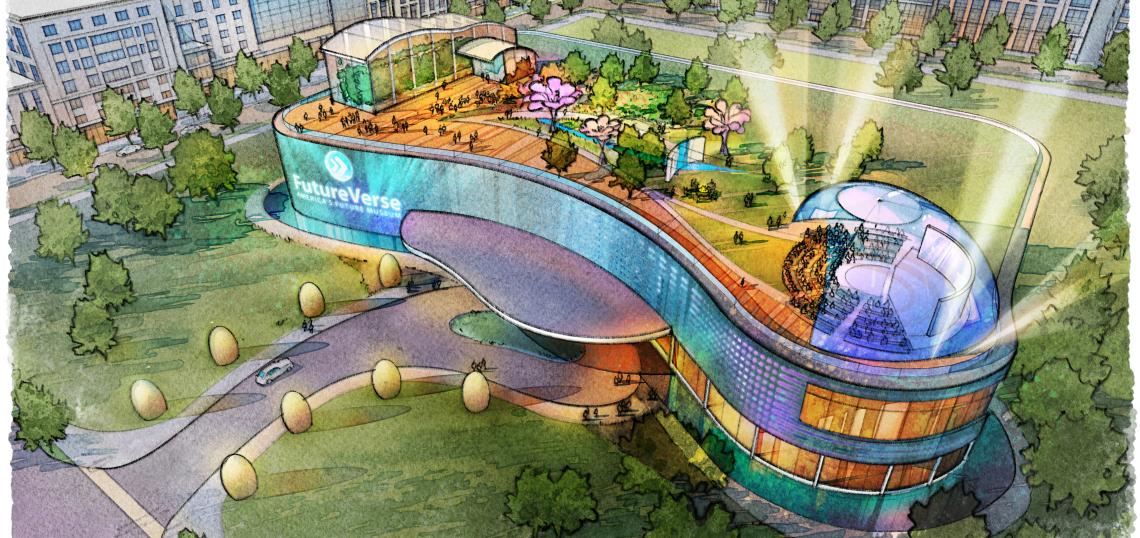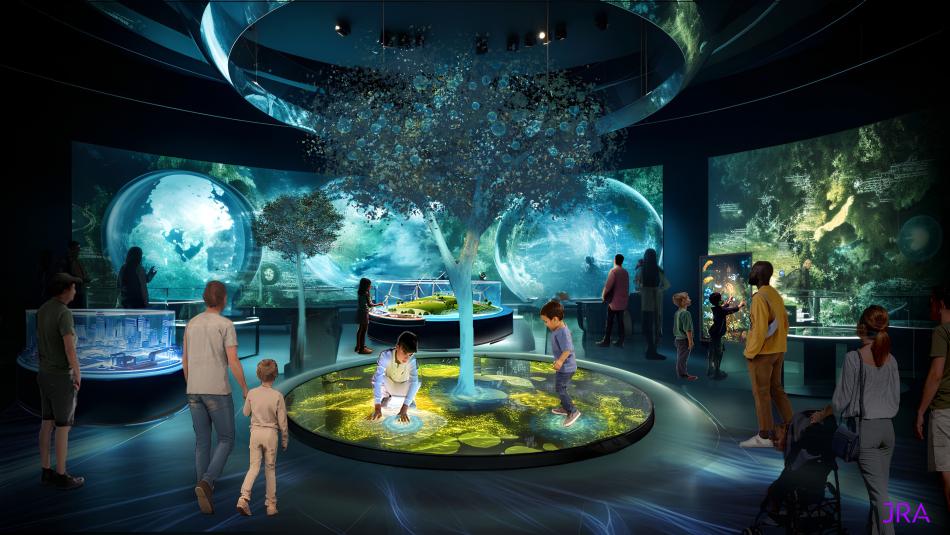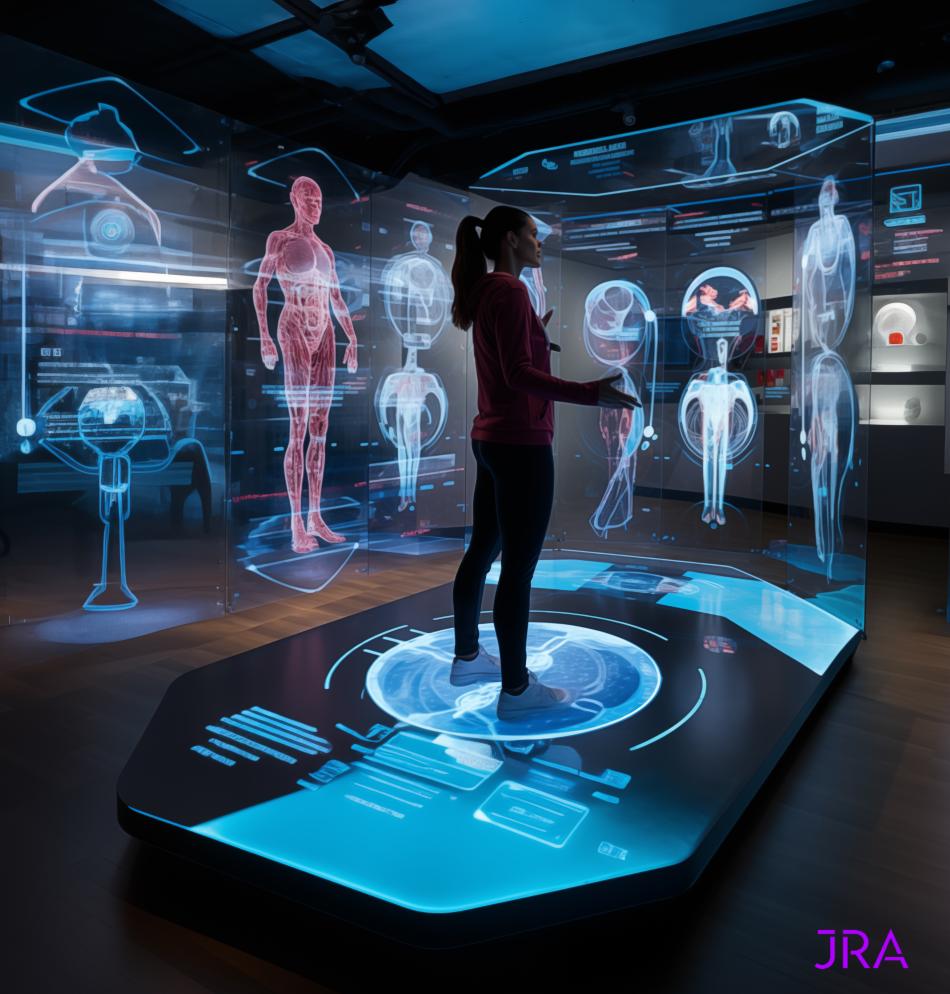A year after it made a splash with dazzling (tentative) renderings and predictions of being one-of-a-kind, a downtown Atlanta museum concept is helping set the stage for becoming reality with a public-private partnership its backers call “groundbreaking” and “transformative.”
Officials with FutureVerse: America's Only Museum of the Future and Clayton County Public Schools gathered at Midtown law offices earlier this month for a partnership announcement and kickoff event.
Clayton County has signed on as the pilot school district for a FutureVerse initiative called Program ASPIRE.
The program will bring high-tech, immersive, AI and virtual-reality powered Innovation Labs into Clayton County classrooms, with a goal of increasing student engagement and forming a new model for educational innovation, according to officials.
The effort is being funded through the Peach Education Tax Credit at no extra cost to Georgia taxpayers, and it plants seeds in local classrooms years before the future-focused museum would open in downtown Atlanta, according to a Program ASPIRE announcement.
Meanwhile, exactly where the museum could be located has yet to be determined.
 Early designs for the facility's exterior, where project backers expect 1.2 million visitors to flock annually. Courtesy of FutureVerse; designs, Cooper Carry
Early designs for the facility's exterior, where project backers expect 1.2 million visitors to flock annually. Courtesy of FutureVerse; designs, Cooper Carry
A FutureVerse rep tells Urbanize Atlanta this week that David Wynett, the project’s president and chief creative officer, continues to have talks with Centennial Yards developer CIM Group about potentially locating the tourist attraction at the rising megaproject in the former Gulch.
The FutureVerse concept was unveiled in April last year with support from corporate leaders, innovators, and leaders at some of Georgia’s most influential universities. Costs for the Cooper Carry-designed facility—which early renderings depict with a flowing, modern exterior and multiple rooftop activations—were estimated at $100 million. (A capital campaign is underway.) An in-house analysis suggested the museum could pull in more than 1.2 million annual visitors and quickly generate revenue of $50 million.
At the time, Wynett predicted FutureVerse would bolster tourism and provide Georgia students with “unparalleled STEAM learning opportunities with fun, high-tech immersive exhibits.”
Museum designs call for six Future Galleries that celebrate American ingenuity and innovation, with a focus on the next generation of AI, virtual reality, and augmented reality.
 Potential look of the FutureVerse atrium, as shown in renderings released in April 2024. Courtesy of FutureVerse; designs, Cooper Carry
Potential look of the FutureVerse atrium, as shown in renderings released in April 2024. Courtesy of FutureVerse; designs, Cooper Carry
Once section backed by Emory Healthcare, for example, would be called the Future Health gallery, with a focus on preventative health and the human body.
Another, the Future Transportation gallery, would showcase advances in automotive, aerospace, and locomotive engineering and space travel.
Future Earth, meanwhile, would explore climate change and solutions.
Other planned sections include Future Play (billed as a “gaming arcade of the future”), Future Tech (a Jetsons-like glimpse at family homes of the future), and interactive Future Art (a fusion of art and film and tech).
The goal, according to FutureVerse reps, is to open the museum by 2028.
The project’s board of advisors includes representatives from Georgia Tech, Emory Healthcare, Woodruff Health Science Center, University of Georgia’s College of Agricultural & Environmental Sciences, Morehouse School of Medicine, Georgia State University’s Robinson College of Business, and law firm Kilpatrick, Townsend, and Stockton, which hosted the recent announcement with Clayton County schools.
...
Follow us on social media:
Twitter / Facebook/and now: Instagram
• Downtown news, discussion (Urbanize Atlanta)








